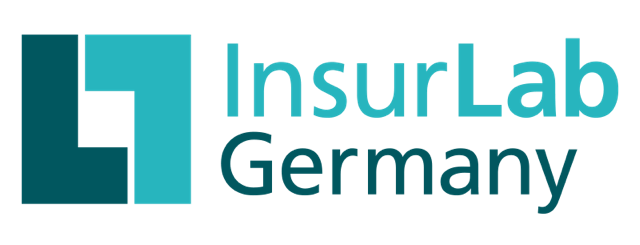Blockchain has made a lot of headlines over the past year and this year. But how exactly is this innovative technology impacting our insurance industry? Nia Escobar, Startup Community Manager at InsurTech Hub Cologne, explored this question for the Digital Hub Initiative Blog to the bottom.
Last November, Etherisc was awarded by InsurLab Germany in the A+ series at the EXEC Insurtech Conference in Cologne. Following the award ceremony, Nia Escobar spoke with Christoph Mussenbrock - Co-founder and CEO of the German startup Etherisc. Etherisc is considered one of the most prominent insurtechs in Europe and is one of the first companies to run entirely on blockchain. In this interview, Christoph Mussenbrock describes the opportunities and impact that blockchain technology has on the insurance industry.
The insurance industry, owned by multimillion-dollar corporates and regulated by unwieldy institutions, has a tough time with the public. From outdated customer service to cabinets full of paper files, digitization has been slow to make its way into these dusty corporate buildings. That's about to change - since the invention of Blockchain by Satoshi Nakamoto in 2008, new opportunities have been paved to create value for customers, incumbents and stockbrokers.
Blockchain is a decentralized technology that is peer-to-peer based and essentially provides an audit for any transaction or information exchange. Blockchain technology has a pretty bad reputation due to the "cryptocurrency craze." However, in the verification of payments, medical information, secure protocols, and data storage (including identities), the technology has proven to be very valuable.
Let's start with the basics. What is Etherisc?
Christoph Mussenbrock: Etherisc is an innovative, decentralized insurance platform. Many interesting insurance start-ups find it difficult to enter the insurance space given the high level of market regulation. We want to specifically solve this problem by decentralizing this space. This biet Barrien off and allows easier and faster access to the market in general as well as to capital, to regulatory frameworks and to incumbents.
Terms like transparency and security often come up when blockchain technology is described. But how secure is the technology in practice?
The basic blockchain infrastructure and technology has the highest level of security in the world, if used properly. Blockchain can be a very secure way to create applications for customers or for internal communications, protocols or documents. This allows for the creation of applications that are used by more than one person, as it is equally verifiable by all users and you can truly trace every transaction and revision.
But not everything is perfect yet by a long shot. In your opinion, what are some of the biggest limitations that blockchain still faces within the industry?
A major limitation is definitely the acceptance of blockchain technology by the public. We are in a similar situation right now as when the Internet was new and still had low acceptance. The difference now is that right now we have this extremely developed technology as well as exceptional business field development. Unfortunately, we face many limitations due to the low number of users.
What do you think are the biggest benefits of blockchain technology applications for insurance?
Given the stock market value and volume of the industry, I think the use of blockchain will allow transparent practices to develop. This will enable easier access to insurance products that is also fairer. This easier access is significant for customers, service providers, insurtech startups, and intermediary players and brokers alike. Because the market barriers will definitely become smaller this way.
Can you give us an example of exactly how that works?
With the help of Etherisc, we have built a decentralized insurance system for flight delays that runs on a public blockchain. This way, filling out forms is a matter of minutes and our customers receive instant compensation in case of a delay. Our Flight Delay Dapp is the first decentralized insurance app that allows you to process forms directly in the app and get reimbursed claims completely autonomously.
Blockchain applications in Germany, especially in the insurance industry, seem to be becoming more popular. Why do you think this is happening?
I think that's because people are generally more sensitive to issues like transparency and fairness. There are already many teams with great ideas for new insurance applications that integrate artificial intelligence, Big Data and other technologies. However, because of the aforementioned high market barriers, teams are struggling to make their ideas practical. The current need for transparency and fairness opens up the opportunity to launch new products for customers with low market maturity, small initial capital and less mature technical requirements within the regulatory infrastructure.
Do you think all traditional insurers can use blockchain? Under what conditions does it work and when not?
We believe that the question needs to be looked at from a different angle. The right question is: What role will companies play in the blockchain economy in the future? Some insurance companies are already using blockchain internally to reduce costs, communicate more effectively, and update their systems. However, I see the greatest potential in "full stack insurtechs" where the entire value chain is developed using the blockchain platform.
Could you predict the future in blockchain insurance?
I would say that in the next five to ten years, we will see such a developed economy in blockchain that will allow users to buy insurance products and much more. Right now, the user experience is too long and involved. This will be an exciting change with huge implications.
What about cryptocurrencies in the insurance industry?
Virtual currencies also face difficulties. Cryptocurrencies are known for their high volatility, which makes them difficult to use because insurance companies need a stable monetary base. There are very interesting projects trying to address these problems with stable coins, for example. We can already foresee that these will play an important role in the insurance industry.
It seems people love, fear or hate blockchain. Which perspective do you take?
I think most incumbents and companies see the potential benefits, but they have yet to find and understand their role in this space. I would encourage people to experiment and stay informed. Anyone who approaches blockchain with some seriousness recognizes the potential and knows that being afraid is not the answer.
If you could send one message to incumbents, what would it be?
Get on board, be open, experiment and be present.
And to the customers?
I would recommend that customers playfully familiarize themselves with the concepts and platforms of blockchain technology and cryptocurrencies - for example, simply invest 50 euros to try it out. And then observe how the investment develops.

